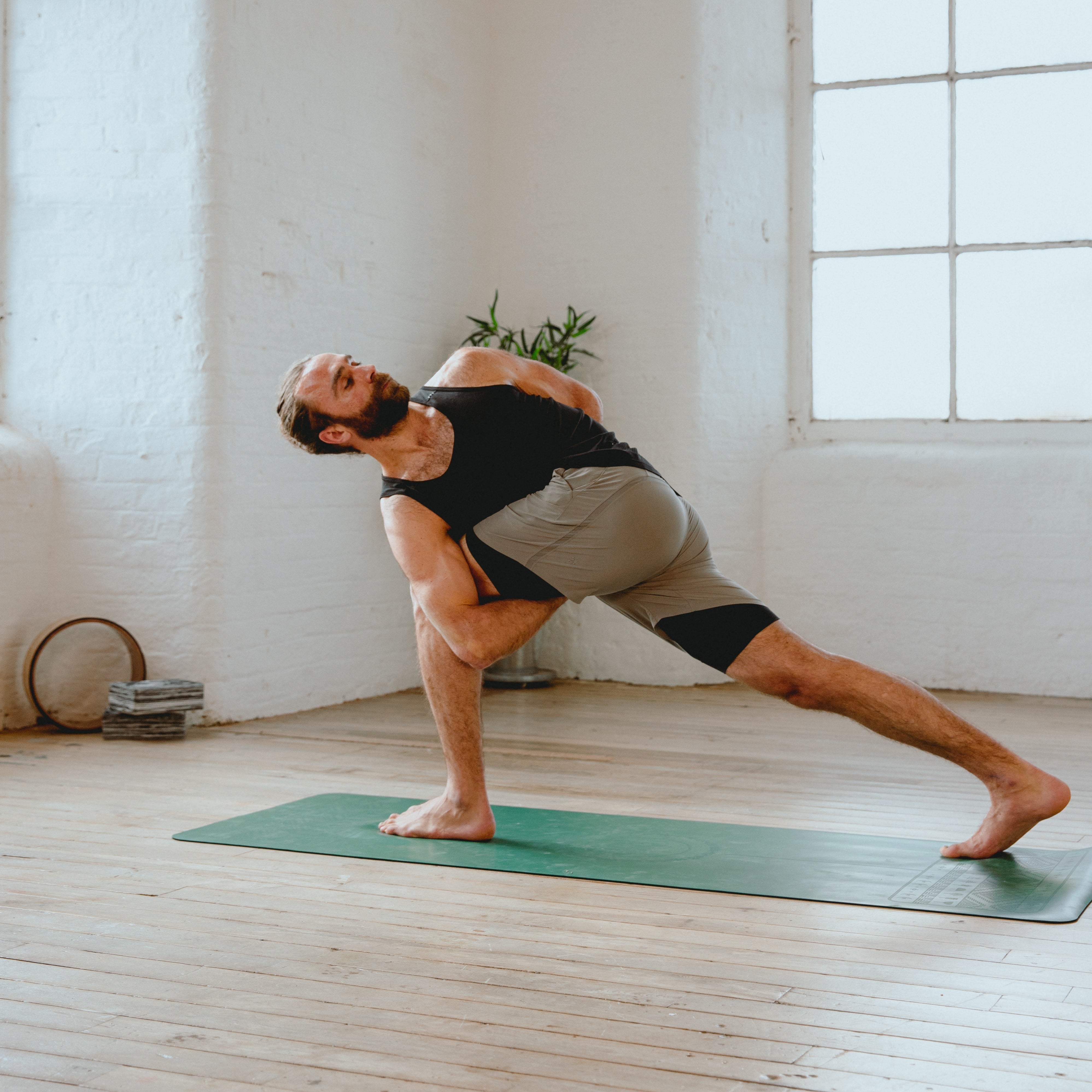In a world where we’re increasingly spending more of our time rooted to a screen of some description, flexibility is critical for our health and wellbeing.
But what does the word flexibility mean? Often confused with stretching, suppleness, or mobility, flexibility is in fact, the ability of our muscles and its connective tissues to stretch temporarily.
A combination of static and dynamic stretching is the best way of improving flexibility. To many people, this will conjure up images of yoga. Whilst it’s true that stretching is a key component of yoga, stretching is also an impactful practice in its own right.
Why does Flexibility Improve Mental Health?
Undoubtedly, standing or sitting in one position or carrying out repetitive tasks for long periods of time takes its toll on our bodies. Hunched shoulders, RSI, aching muscles, backache, neckache, the list goes on. All this body tension translates into tight, inflexible muscles.
Experiencing aches, pains, and muscle tension can also affect our feelings and emotions and ultimately our mental health. It’s not unusual to experience fatigue, or feel completely fed up, tense, stressed or depressed and in worst cases, ill as a result of physical issues.
Stretching stimulates receptors in the nervous system that slow the production of stress hormones and lift your mood. Not just that, but better flexibility can encourage circulation and blood flow, boost energy levels and athletic performance, improve posture, and increase your range of motion.
It’s also quick, easy, and ultra-convenient. You can literally stretch anywhere. You don’t even have to get up to do it, although it's better if you do!
Even just a few minutes of stretching a day can make a huge difference to your flexibility. Check out our blog post ‘How Yoga Can Get You into the Full Splits.’ By adopting a regular stretching routine, some people even achieve this within one month!
5 Benefits of Stretching
Hormones
Stretching releases chemicals known as endorphins. These ‘happy’ hormones are famed for giving us a ‘high’ or euphoric feeling. Whilst the high may be short-lived, the benefits are long-lasting and those that experience endorphins regularly tend to have a more positive outlook, feel happier and their perception of pain is reduced too.
Mindfulness
Stretching brings a much greater awareness of the body and of any tension that’s being held within it. This is significant because it enables you to address aches, pains, and tension and take pre-emptive action before they get worse.
A good stretch also forces you to slow your rate of breathing right down and to inhale more deeply. The more oxygen is breathed into the body, the more nourishment it receives, keeping our body at optimum health. Slower, deeper breathing also relaxes muscles, reducing tension in the body and leads to a more calm, peaceful state of mind.
When you hold a stretch or a yoga pose, it also requires a lot of focus and brings you back to the present. This banishes the all-too often present monkey mind and because you’re concentrating on doing one thing really well, a natural side-effect is that the mind becomes less distracted.
Blood Flow
Stretching improves blood flow and circulation to the brain and muscles. The physical effects are obvious, blood and oxygen are delivered more quickly to muscles, tissues and cells which means a physically healthier, more youthful body.
There are also benefits for your mental health too. It’s like an instant pick-me up. A boost to circulation and blood-flow makes you feel more energised, more clear-headed, and if you’re having a grumpy day, it's sure to lift your mood.
Improve Quality of Sleep
We all know that sleep is very much linked to our mental health. When sleep suffers, we suffer. Stretching promotes mindfulness and relaxation which have been shown to settle the mind and promote better sleep.
Feeling physically comfortable without aches and pains is also important for achieving a restful night of sleep. This is where stretching can help again because it relieves muscle tension and reduces the potential for cramps.
Routine
Adding stretching into your daily routine gives you a sense of purpose and a reason to wake up in the morning.
Studies have also shown that daily routines have a multitude of mental health benefits including creating a sense of discipline and structure, a feeling of being in control, reducing stress and anxiety, and even management of certain mental disorders. Stretching is a great way to start off the day with meaning and a calm mindset.
What Equipment Do You Need for Stretching?
The good news is that you don’t need much apart from yourself and a non-slip mat. It’s recommended to use one because it will support joints, balance and posture and there’s much less likelihood of injury.
We’d recommend trying our Yogi-Bare Paws Non-slip Mat for extreme grip technology or if you prefer a wider mat, Yogi-Bare Paws X Non-slip Mat.

Leave a comment